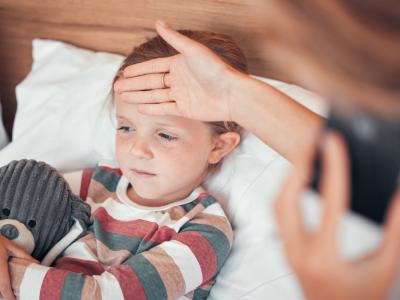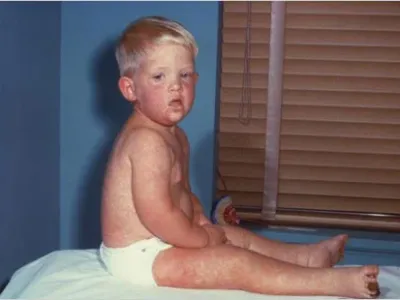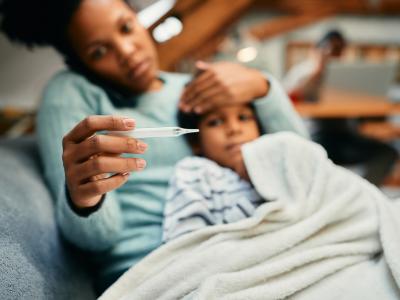Third COVID vaccine boosts antibodies that neutralize Omicron
A third dose of COVID-19 vaccine successfully raises antibody levels that neutralize the Omicron variant, according to laboratory findings from UK scientists published yesterday in The Lancet.
Researchers from the Francis Crick Institute (FCI) and the National Institute for Health Research (NIHR) UCLH Biomedical Research Centre used a high-throughput live SARS-CoV-2 neutralization assay to determine neutralizing antibody titers against Omicron, Alpha, and Delta variants in 620 serum samples from 364 people. They found that antibodies generated in people who had received only two doses of either the Oxford-AstraZeneca vaccine or the Pfizer-BioNTech COVID vaccine were less able to neutralize the Omicron variant compared with the other two variants.
They also found that antibody levels dropped off in the first 3 months following the second dose but that a third dose raised levels of antibodies that effectively neutralized the Omicron variant. The study did not assess vaccine effectiveness, only antibody activity in the lab.
Antibody levels against Omicron after a third Pfizer dose were similar to those reached against Delta after two doses. Antibody levels were nearly 2.5 times higher against Omicron after three doses compared with after two.
Higher levels of antibodies against Omicron were also found in people who previously had COVID-19 symptoms and received two doses of either vaccine, compared with those who had not had prior COVID-19 symptoms.
Study author Emma Wall, MBChB, PhD, senior clinical research fellow at FCI and infectious disease specialist with UCLH, said in an FCI news release, "People who have queued outside vaccinations centres should be reassured that a vaccine booster is the best way of protecting them from Omicron. And for people who haven't yet had a booster or even a first dose, it's not too late."
Co-author Sonia Gandhi, BMBCh, PhD, legacy chief investigator at FCI and a consultant neurologist at UCLH, said, "Future research will need to address the duration and persistence of this booster response."
Jan 19 Lancet study
Jan 19 FCI news release
Lacking therapies, hospitalized African kids face poor COVID-19 outcomes
COVID-19 case counts and deaths were much higher among children and teens hospitalized for the virus in six sub-Saharan African countries—particularly in infants and those with certain underlying noninfectious diseases—compared with other countries, finds a multinational study yesterday in JAMA Pediatrics.
The researchers retrospectively reviewed data from 25 hospitals in the Democratic Republic of the Congo, Ghana, Kenya, Nigeria, South Africa, and Uganda from Mar 1 to Dec 31, 2020. The study included 469 hospitalized COVID-19 patients 0 to 19 years old. Median age was 5.9 years, and 24.5% had underlying illnesses.
Eighteen patients (3.8%) had suspected or confirmed multisystem inflammatory syndrome in children (MIS-C), and 8.3% died, including 22 of 69 patients (31.9%) admitted to an intensive care unit and 22.2% with MIS-C. In comparison, rates of 1% to 5% for these outcomes have been reported in higher-income countries.
The adjusted odds ratio (aOR) of more versus fewer severe outcomes among children younger than 1 year were 4.89 times higher than that of patients aged 15 to 19. Risk factors for poor outcomes included high blood pressure (aOR, 5.91), chronic lung disease (aOR, 2.97), and blood disorders (aOR, 3.10).
Age younger than 1 year (adjusted subdistribution hazard ratio [asHR], 0.48) and the presence of one or two or more illnesses (asHR, 0.54 and 0.26, respectively) were tied to lower rates of hospital release.
"If a child has a comorbidity, is very young and is in a place where there are limited or no specialized doctors, facilities or equipment for pediatric intensive care, then that child faces a very real possibility of dying," lead author Jean Nachega, MD, PhD, MPH, of the University of Pittsburgh, said in a press release.
In a related editorial, Ethwako Mlia-Phiri, MMed, of Queen Elizabeth Central Hospital in Blantyre, Malawi, and colleagues said that despite the outsized impact of COVID-19 on sub-Saharan African children, preventive and therapeutic options are largely unavailable to them.
"The vaccine equity gap, which has disproportionate consequences for [low- and middle-income countries], remains a major factor associated with the COVID-19 pandemic worldwide," they wrote.
Jan 19 JAMA Pediatr study and editorial
Jan 19 University of Pittsburgh press release
Study: Mild symptoms limit COVID-19 testing in UK
A new study based on 4 million British participants shows mild symptoms, a lack of knowledge about testing site locations, and confusion about COVID-19–specific symptoms were all risk factors for not getting tested for the novel coronavirus. The study was published yesterday in PLOS Global Public Health.
The study was based on 4.4 million responses gathered in the Zoe COVID Symptom Study smartphone app for self-reporting symptoms and test results. Researchers sent follow-up surveys at the end of 2020 to almost 5,000 people who reported COVID-19 symptoms but reported taking no test.
In total, 40.4% of survey respondents were not able to name all three polymerase chain reaction (PCR) test-qualifying symptoms, which included a fever; a new, continuous cough; or a change in their sense of smell or taste.
Users were less likely to get a free test if they had only one COVID-19 symptom compared, with peers with multiple symptoms (27.1% versus 14.6%, p<0.001). If symptoms were short-lived, people were also less likely to get tested (symptoms lasting 1 or 2 days, compared with those with longer-lasting symptoms (30.1% vs 14.6%, p<0.001).
The study also mined UK responses from the University of Maryland survey administered to Facebook users (The Global COVID-19 Trends and Impact Survey), which found that not knowing where testing sites were located was cited 32.4% of the time as the primary reason someone who wanted a test did not get one.
"Knowing when and where to get a test is crucial to curbing COVID-19 transmission, yet one in four people with the UK test-qualifying symptoms of fever, cough, or loss of smell did not get tested," the authors said in a PLOS press release. "Over a third of these individuals did not recognize the three symptoms that would qualify them for a test, and about a third of those who wanted testing did not know where to go, indicating that more effective education is needed to close the testing gap."
Jan 19 PLOS Glob Public Health study
Jan 19 PLOS press release
France orders preventive culling to curb avian flu outbreaks
France's agriculture ministry today announced a major poultry culling effort in the southwest designed to prevent the continuing spread of avian flu. According to media reports, the cull will target 1.3 million more birds, in addition to 1.2 million that have already been destroyed.
In a statement, the ministry said the culling area covers 226 municipalities in three departments: Gers, Landes, and Pyrenees-Atlantiques. Officials will implement strict protocols to avoid the spread of the virus during poultry transport. Breeder flocks and hatcheries will be preserved for restocking purposes.
France reported its first highly pathogenic H5N1 outbreak in poultry of the season on Dec 16. As of Jan 18, 291 outbreaks have been reported, compared with 216 for the same time last season. Southwest France is home to the country's foie gras industry and has been hit hard by avian flu outbreaks before, which the country also battled with aggressive measures.
The outbreaks in France are part of a surge in avian flu activity across multiple world regions, with the Eurasian H5N1 strain turning up recently in Canada and the United States. In the fall, the World Organisation for Animal Health urged countries to step up their surveillance and biosecurity measures.
Jan 20 French agriculture ministry statement
Jan 20 Reuters story












